Italian Polysemous Words || 15 Italian Words With Multiple Meanings
15 Italian Polysemous Words || One Word, Many Meanings

Hello everyone! Today we will look together at some Italian polysemous words.
First of all, what is a polysemous word?
A polysemous word is a word with more than meaning.
Some of these words are, in theory, pronounced slightly differently depending on the meaning.
However, as you are probably well aware, Italian words are often pronounced differently from region to region, especially with regard to the pronunciation of the vowels “o” and “e”, which can be closed or open.
To understand the meaning of the word, therefore, you will need to refer to the context in which it is used.
Knowing them will enable you not only to expand your vocabulary but also to understand some Italian play on words. In particular, polysemy is often used in satirical or political cartoons.
Italian Polysemous Words | Folle
Italian Polysemous Words | Piano
Italian Polysemous Words | Pesca
Italian Polysemous Words | Tirare
Italian Polysemous Words | Borsa
Italian Polysemous Words | Storia
Italian Polysemous Words | Capitale
Italian Polysemous Words | Letto
Italian Polysemous Words | Accetta
Italian Polysemous Words | Trucchi
Italian Polysemous Words | Lama
Italian Polysemous Words | Venti
Italian Polysemous Words | Tasso
Italian Polysemous Words | Capo
Italian Polysemous Words | Botte
Italian Polysemous Words | Domande Frequenti
Italian Polysemous Words || Folle
The word folle can have three different meanings:
- It’s the plural form of “folla”, meaning “crowds”
- It means “crazy”
- In the expression “in folle”, it means “in neutral” (when talking about a car’s transmission)
Solo un folle prenderebbe una decisione simile. (Only a fool would make such a decision.)
Ora metti il cambio in folle. (Now put the transmission in neutral.)
Italian Polysemous Words || Piano
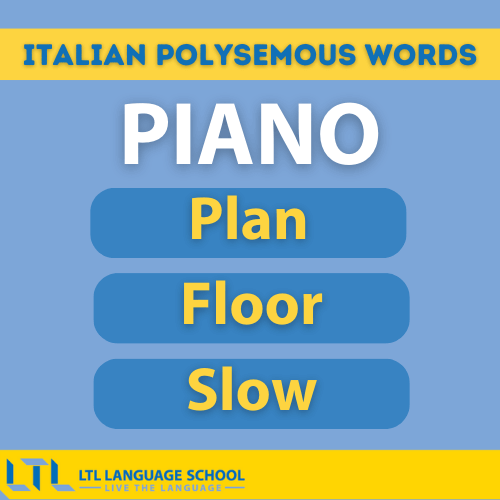
The word piano can mean “plan,” “floor” and also “slow”. Here are some examples:
State tranquilli! Ho un piano. (Keep calm! I have a plan.)
Vivo al secondo piano. (I live on the second floor.)
Puoi andare più piano? (Can you go slower?)
Italian Polysemous Words || Pesca
Pesca can mean both “peach” and “fishing”. It’s also the 3rd person singular of the present indicative of the verb “pescare” (to fish or to draw):
Non sono mai stato a pesca. (I have never been fishing.)
La pesca è il mio frutto preferito. (Peach is my favorite fruit.)
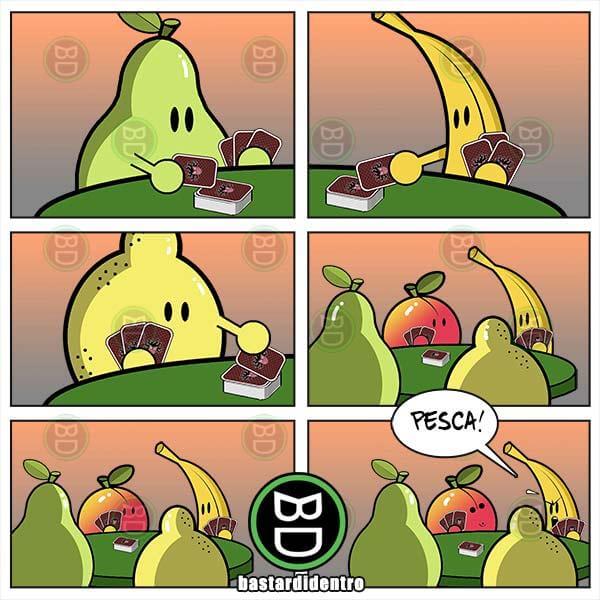
Pèsca, with an open “e” is the name of the fruit, while pésca, with a closed “e”, means “fishing” or “draw”. However, in some regions, they are both pronounced the same way.
Italian Polysemous Words || Tirare
The verb “tirare” can have two almost opposite meanings: it can mean both “to pull” and “to throw”, depending on the context.
Sulla porta c’è scritto “tirare“. (It says “pull” on the door.)
Stefano ha tirato la palla sull’albero. (Stefano threw the ball up the tree.)
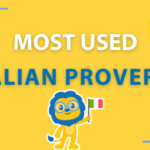
Italian Proverbs || 10 of the Most Used Proverbs in Italy (by Native Speakers)
Learning Italian proverbs and idioms is a great way to understand the language as spoken by natives. Here are some of our favourites.
Italian Polysemous Words || Borsa
Borsa means both “bag” and “stock market”, depending on the context.
Oggi la borsa di New York ha registrato un notevole aumento. (New York Stock Exchange today saw a significant increase.)
Non mi ricordo dove ho messo la borsa. (I can’t remember where I put my bag.)
If you look at Political cartoons on Italian newspapers, you’ll find that bags are often used as a symbol for the stock market:
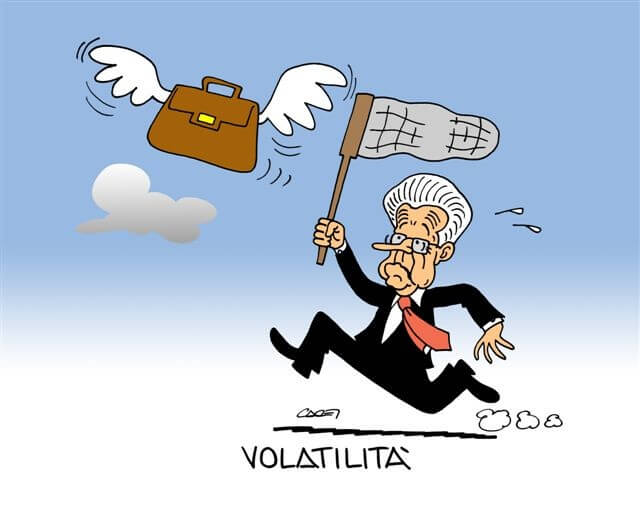
Italian Polysemous Words || Storia
The Italian word “storia” can mean both “history” and “story”:
Mamma mi racconti una storia? (Mom can you tell me a story?)
Sono laureato in storia. (I have a degree in history.)
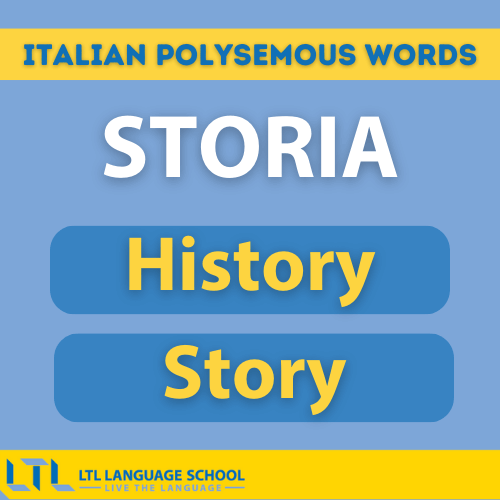
Italian Polysemous Words || Capitale
As is the case with the English word “capital,” the Italian word “capitale” can also mean “main city” or “financial resources.”
The difference is that, in Italian, the two meanings are distinguishable by the gender of the word: “la capitale” is the city, while “il capitale” is the financial resources.
Roma è la capitale d’Italia. (Rome is the capital of Italy.)
Gli imprenditori cercano sempre nuove fonti di capitale. (Entrepreneurs are always looking for new sources of capital.)
Italian Polysemous Words || Letto

“Letto” can mean both “bed” and be the past participle of the verb “leggere” (to read).
Ieri sera ho letto due capitoli. (Last night I read two chapters.)
Stasera vado a letto presto, sono stanchissimo. (I’m going to bed early tonight, I’m so tired.)
It can also have figurative meanings, indicating the bed of a river (“il letto del Po”) or a layer of something in the description of a dish (ex. “un letto di rucola”).
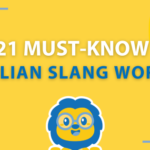
Italian Slang Words || 21 Slang Words And Expressions With Examples
Learn new Italian slang word and expressions and start speaking Italian just like a native. Here are 20 must-know Italian slang words.
Italian Polysemous Words || Accetta
“Accetta” means hatchet, but it’s also the 3rd person singular of the present indicative of the verb “accettare” (to accept).
Accetta l’offerta! (Accept the offer!)
L’uomo tagliava legna nel bosco con un’accetta affilata. (The man was cutting wood in the woods with a sharp hatchet.)
The verb “accettare” can also mean “to cut with a hatchet”, so it’s frequent to find jokes about this double meaning (this is the kind of joke you can find on your mom’s Facebook page):
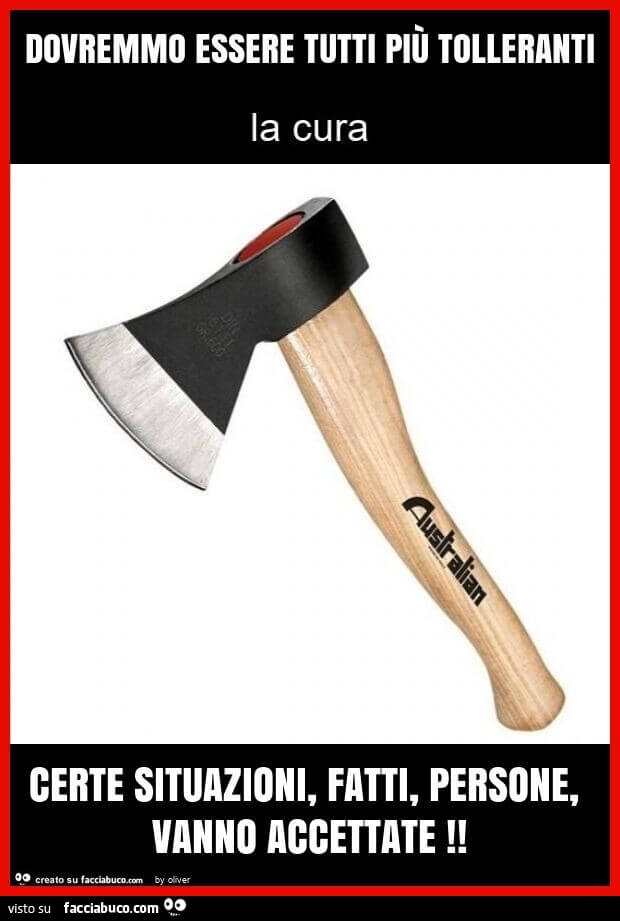
To be more precise, accètta is the verb to accept, and accétta is the hatchet. However, as usual, many Italian accents don’t make this distinction.
Italian Polysemous Words || Trucchi
“Trucchi” can mean:
- Makeup
- Tricks
A Sofia piace usare i trucchi della mamma. (Sofia likes to use her mother’s makeup.)
Conosco molti trucchi di magia. (I know many magic tricks.)
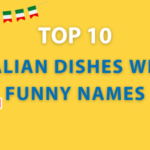
Italian Dishes Names: Top 10 Funniest Names
10 Italian Dishes Names That Sounds Funny Hello everyone! Today we are going to have some fun with a list of Italian foods with strange, absurd, and funny names. Once you hear their names, we are sure you will be…
Italian Polysemous Words || Lama
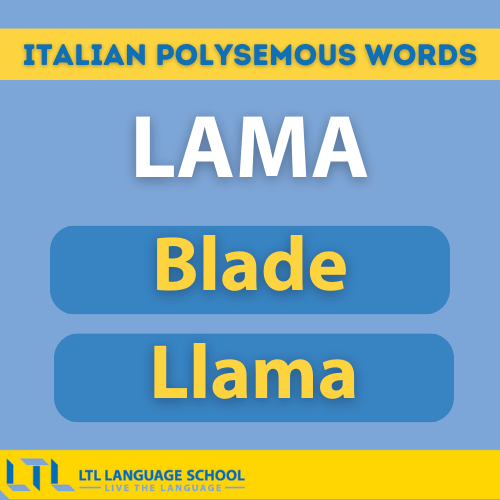
When it’s feminine (“la lama”) means “blade”, while when it’s masculine, (“il lama”), means “llama”.
La lama di quel coltello è molto affilata. (The blade of that knife is very sharp.)
Il lama è il mio animale preferito. (The llama is my favorite animal.)
One word is feminine and the other one is masculine, so in the plural form they are different: we say “le lame” (the blades) and “i lama” (the llamas).
Italian Polysemous Words || Venti
“Venti” can mean both “winds” (plural of “vento”) or “twenty”:
I venti primaverili portavano con sé il profumo dei fiori. (Spring winds brought with them the fragrance of flowers.)
Ho raccolto venti conchiglie sulla spiaggia. (I collected twenty shells on the beach.)
To be more precise, vènti is the plural of vento, while vénti is the number. However, as usual, many Italian accents don’t make this distinction.
Italian Polysemous Words || Tasso
The word “tasso” can refer, depending on the context, to a cute animal (a badger) or it can mean “rate”:
Nel bosco, ho avvistato un tasso. (In the woods, I spotted a badger.)
Il tasso d’interesse sul mutuo è un elemento importante da tenere in considerazione. (The interest rate on the mortgage is an important element to consider)
Italian Polysemous Words || Capo
The word “capo” in Italian can have several meanings.
- In some contexts, it can mean “head”
- In other contexts, it can be used to refer to a leader.
- It can also refer to a clothing item
- It can also be one of the two ends of something, like a rope.
Il maglione è un capo d’abbigliamento versatile.
Il mio capo è in ferie.
Luigi scosse il capo in segno di disapprovazione.
Ricominciamo da capo.

The 10 Best Italian Game Shows || Learn Italian Watching TV
Watching a TV quiz or game show is a great way to learn Italian while having fun. Find out the 10 most popular Italian game shows and how you can watch them.
Italian Polysemous Words || Botte
The word “botte” in Italian has mainly two meanings.
- One meaning is to indicate blows or punches given with force, (“le botte” in this case is the plural form of “la botta”).
- The second meaning is that of “barrel”. In this case, the word is singular (“la botte”). The plural form would be “le botti”, which is, in turn, is a polysemous word (“i botti” is also the plural form of the masculine word “botto” and it means fireworks and firecrackers).
Ho sentito che quei due hanno fatto a botte ieri sera. (I heard that those two got into a fight last night.)
Hanno ordinato una botte di birra per festeggiare l’occasione. (They ordered a barrel of beer to celebrate the occasion.)
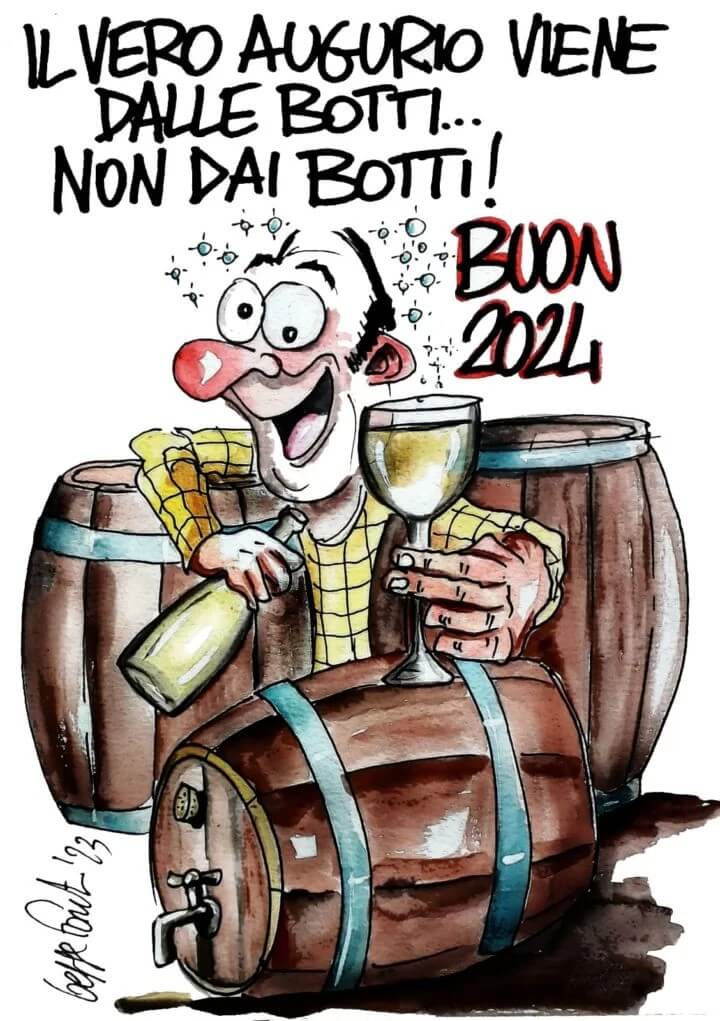
To be more precise, bòtte are the beatings, bótte is the barrel. However, as usual, many Italian accents don’t make this distinction.
Well, that’s it! I hope this article has entertained you. Italian is full of polysemous words, so be ready to learn many more along your learning journey. 😉
Italian Polysemous Words || FAQ
Why do some Italian words have multiple meanings?
Language evolution, regional variations, and historical influences contribute to the polysemy of Italian words.
Is pronunciation crucial in distinguishing meanings?
While slight pronunciation differences exist, context often plays a more significant role in understanding the intended meaning, as some words share the exact same pronunciation.
How do regional accents affect word interpretation?
Regional accents may influence vowel sounds, impacting word pronunciation. For example, in Emilia Romagna “e” and “o” are often pronounced with open sounds. “Accetta”, “pesca”, “botte” are all pronounced with open sounds, regardless of the meaning.
How does humor play a role in language with multiple meanings?
Humorous expressions often stem from wordplay and the clever use of polysemic words. You’ll find widespread use of polysemy in satirical cartoons or strips shared on Facebook.
Can polysemy lead to misunderstandings in communication?
Context usually prevents misunderstandings.
What is a Polysemous Word?
A polysemous word is a word with more than meaning.
Want More From LTL?
FANCY LEARNING ITALIAN? Check out our online Italian courses here.
We offer a 7-day free trial to all online students where you can study Italian 24/7. It doesn’t just end with Italian.
Come and be a part of our amazing community.








